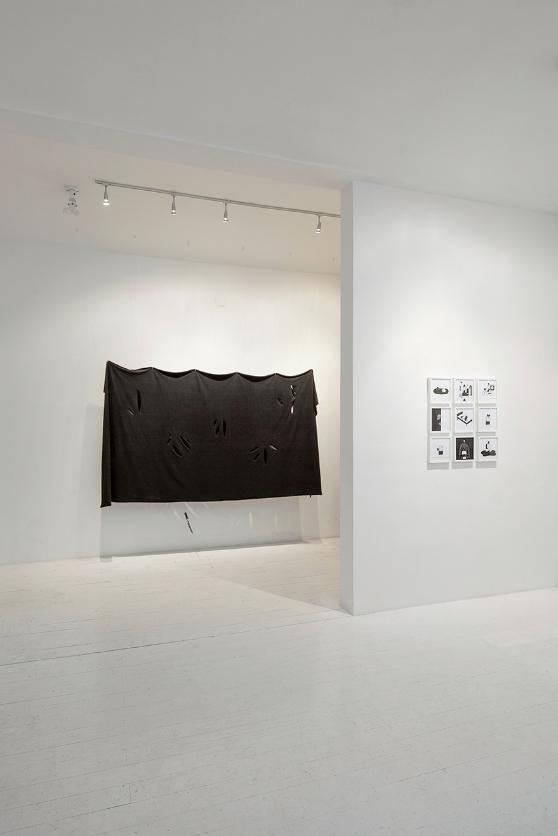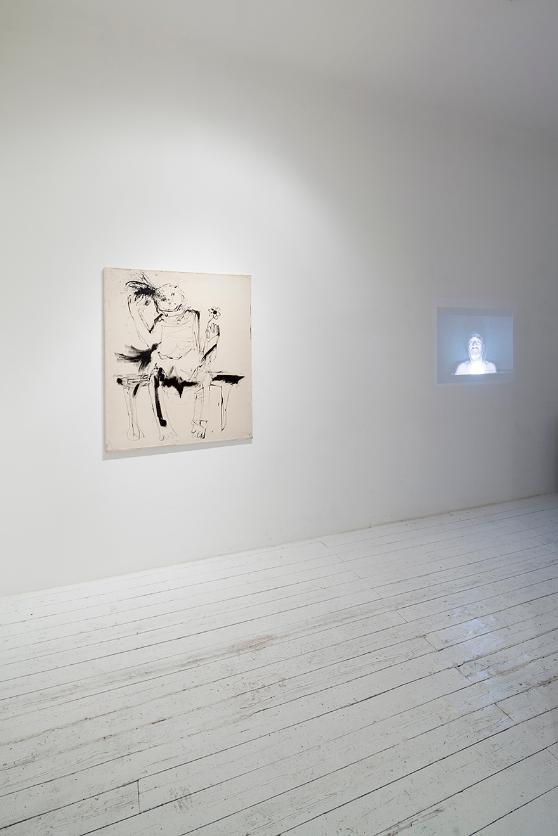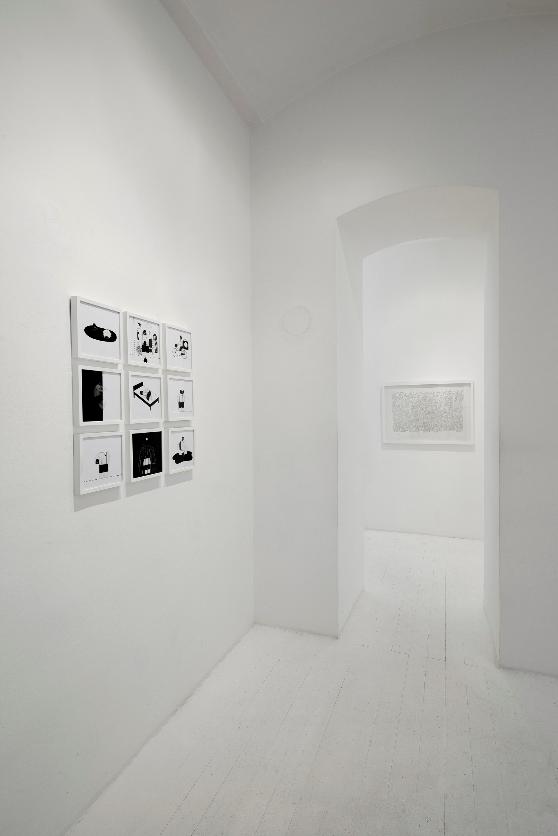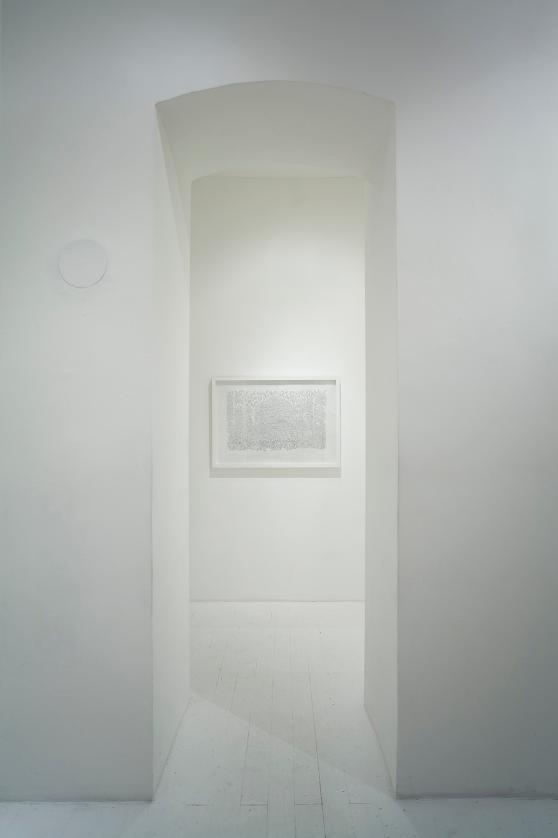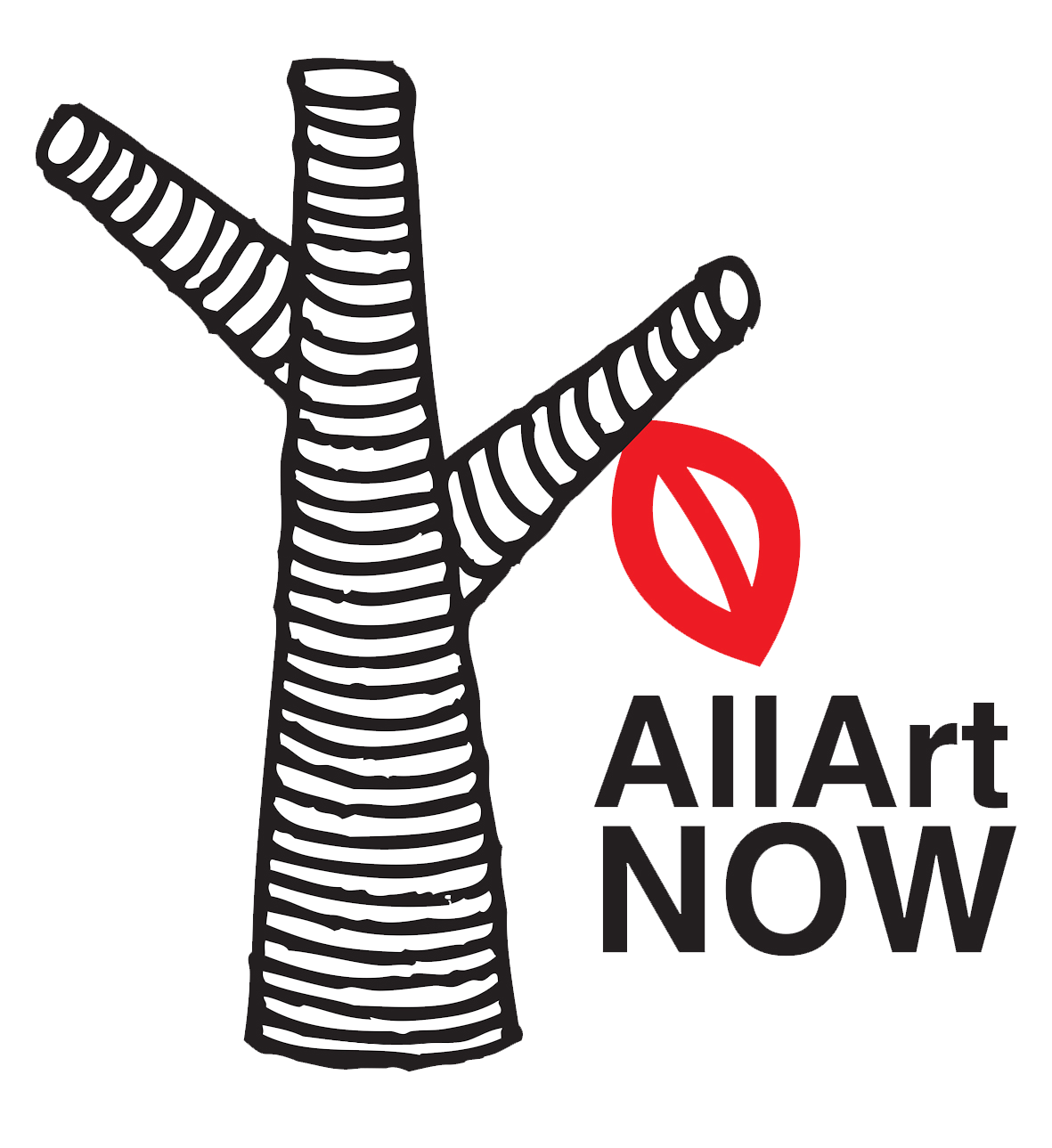I WILL NEVER GET USED TO WAIT
Vwnue//Udstillingsstedet TYS//Copenhagen_Denmark
Artist: Mahmoud Dayoub - Amer Akel - Diana Jabi - Muhammed Ali - Nisrine Boukhari - Erfan Khalife - Nawar Haidar - Rezan Arab
Kurator: Abir Boukhari
"We wait. We are bored...In an instant all will vanish and we'll be alone more, in the midst of nothingness!”...
„Was I sleeping, while the others suffered? Am I sleeping now? Tomorrow, when I wake, or think I do, what shall I say of today? “
Samuel Beckett, Waiting For Godot
I have been inspired by these quotations to propose the concept of "waiting during the war" For me, it is one of the most difficult feelings and we will never get used to it. The absence of action, expecting the worst, living for a future, remaining inactive or in a state of neglect for a time, postponing your life and looking forward eagerly to the day "something" happens to release from your fear of endless waiting.
Is the waiting considered as an intervening period of times spending for nothing or is life always a case of waiting to act? Is the waiting painful or doesn`t not know what to do the worst kind of suffering? Is the waiting, while we are living and experiencing paradoxical facts and contradictory feelings, a time of neutral behavior because feelings are so confused and unclear? Does waiting in silence that is the most common reaction to war trauma represent our experience of all kinds of pain and loss?
This exhibition is a reflection on the subject of waiting that resulted in works by artists from Syria. In the project, the artists engage with the concept through their own individual experience where they found themselves forced to either postpone their plans or create an alternative plan. Some art pieces already produced some years ago; The art piece of Nawar Haidar (produced in 2012) which express the absurdity of his waiting since 2012 till these moments.
Also, the piece of Erfan Khalife (produced on 2012) which came as response to my inquiry concerning his long wait in his life as Palestinian refugee lives in Syria, waiting for solution and find himself in new wait in his temporary homeland (Syria).
The artists have produced the other pieces in the show as a response about the concept of the "Waiting” whether they are still living in Syria or they already left the country.
What do artists think about this period, do they have different points of view about it, its meaning and its value? Do they believe that "waiting is as death" or it is a painful time will lead to a better life?
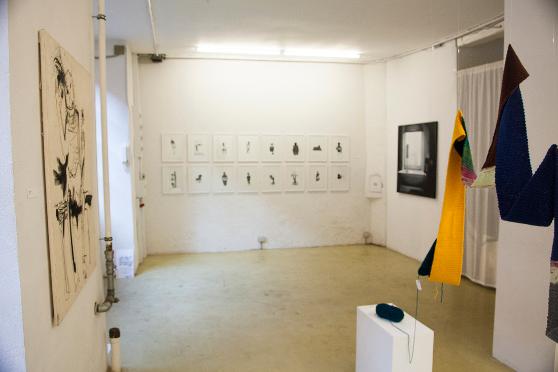
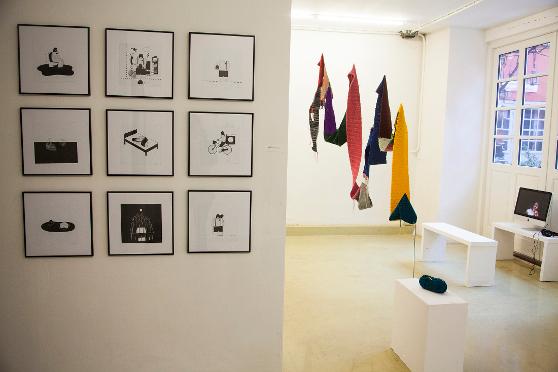
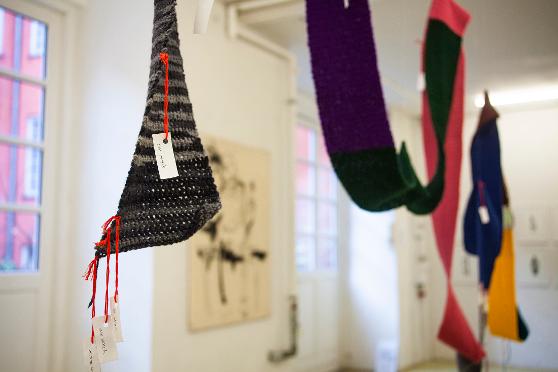
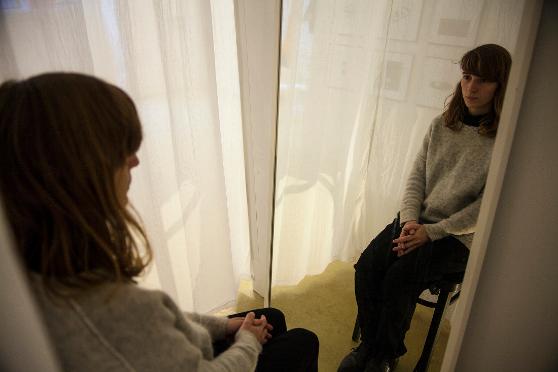
Artist talk co-organized with Iaspis
Venue//Iaspis//Stockholm
Participants: Abir Boukhari, Nisrine Boukhari, Johan Pousette and special guest
The talk will be a dialog on the subject of waiting and the resulting work of the 7 artists from Syria currently exhibited at hangmenProjects. The artists engage with the concept through their own individual experience where they found themselves forced to either postpone their plans or create an alternative plan.
The absence of action, expecting the worst, living for a future, remaining inactive or in a state of neglect for a time, postponing your life and looking forward eagerly to the day "something" happens to release from your fear of endless waiting.

II WILL NEVER GET USED TO WAIT
Venue//HenProjects//Stockholm
Artists: Mahmoud Dayoub, Nisrine Boukhari, Muhammed Ali, Amer Akel, Erfan Khalife, Diana Jabi and Nawar Haidar
Curator: Abir Boukhari
This exhibition is a reflection on the subject of waiting that resulted in works by artists from Syria. In the project, the artists engage with the concept through their own individual experience where they found themselves forced to either postpone their plans or create an alternative plan. The absence of action, expecting the worst, living for a future, remaining inactive or in a state of neglect for a time, postponing your life and looking forward eagerly to the day "something" happens to release from your fear of endless waiting.
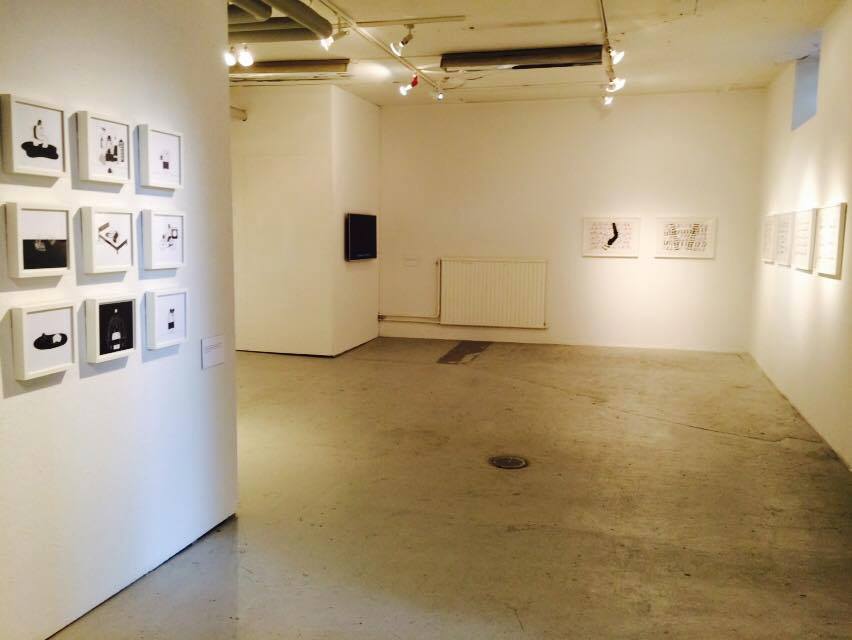
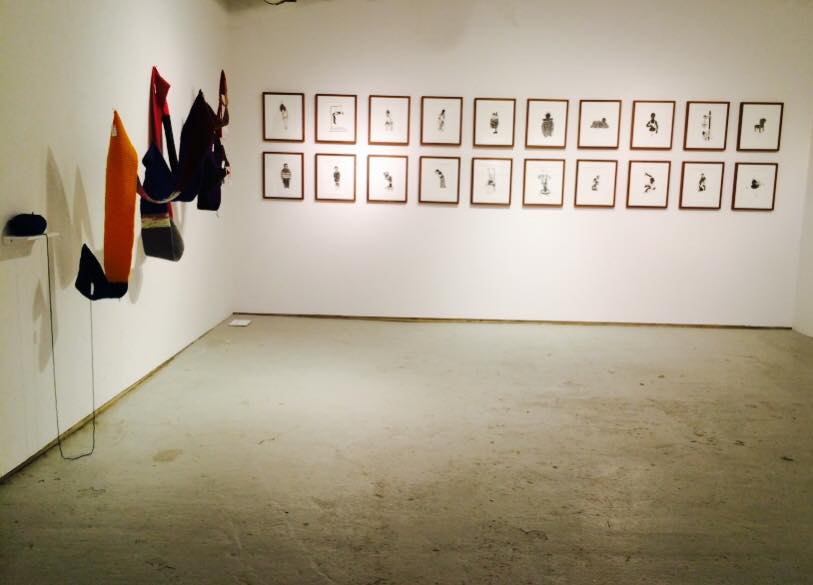
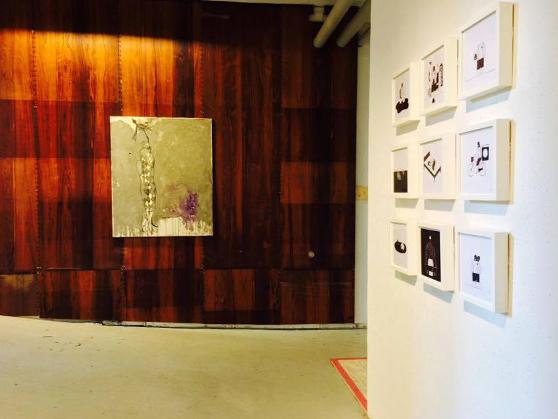
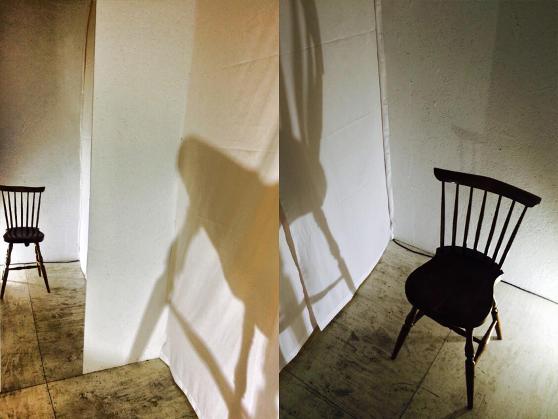
Post-Thousand and One Nights
Venue//Malongen//Stockholm
Artist: Muhammad Ali
Curator: Abir Boukhari
"Through my work, I create mythological deformed figures inspired from my daily life where legends and heroic story no longer exist and people only have distorted memories of their current life – stories about survival, sometimes living by means of cheating, deceiving and hating. They swarm to create groups but do not get to know each other. You might see a son hitting his father, someone stealing from his brothers, and others assaulting poor, neglecting an old woman or showing no mercy to a child... nowadays, my city seems strange to me, as if I never lived in it."
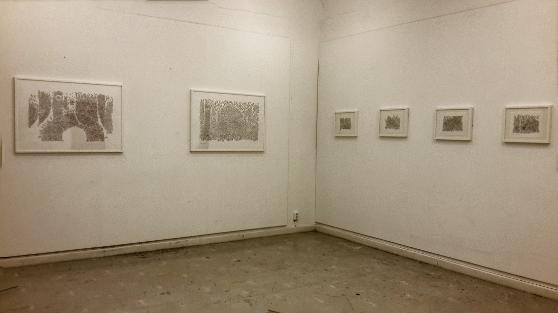
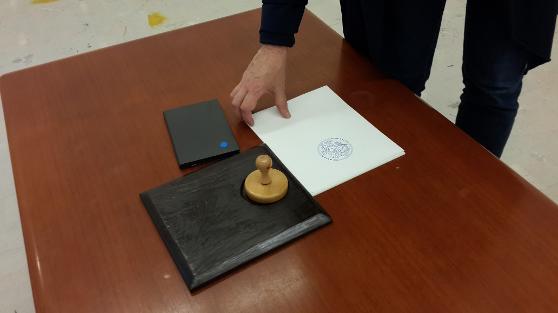
CURATOR TALK
"Welcome to a conversation between Abir Boukhari, currently in residence at the Nordic Guest Studi, Malongen through CRIS (Curatorial Residency In Sweden) and Maria Lantz, vice-chancelor of Konstfack."
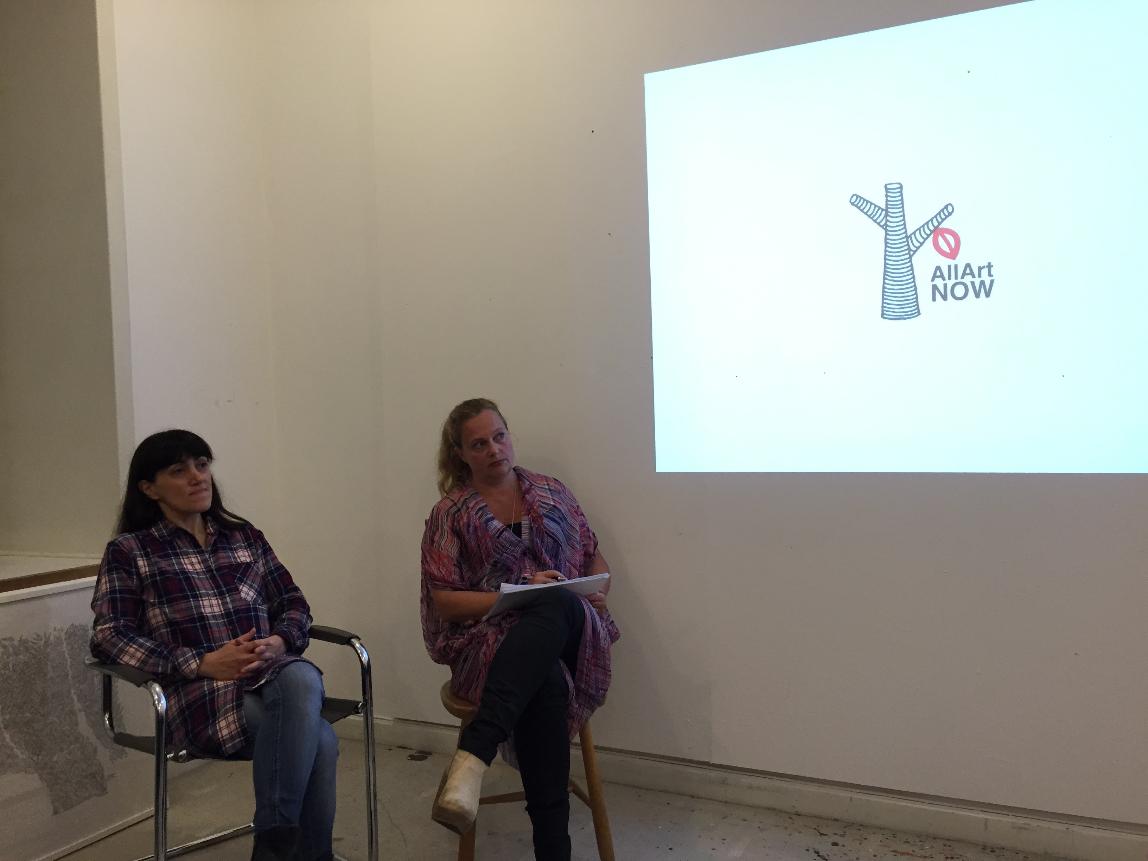
At the Plague
Venue//Supermarket Art Fair//Stockholm
Artists: Amer Akel - Diana Jabi - Mahmoud Dayoub - Muhammad Ali - Nisrine Boukhari
Curator: Abir Boukhari
“But what does that mean – Plague? Just life, no more than that"
Albert Camus, The Plague
The novel by Albert Camus "The Plague" was my point of departure where I use it as symbolic significance to illustrate our struggle of life in the days of epidemic where you rave from pain, live in exile and realize that death is the real and terrible fate around you.
The book is about an epidemic of bubonic plague, and how, as it first arrives, the residents recognize slowly the mortal danger and once they do become aware of it, they start to fight the deadly disease "... we tell ourselves that pestilence is a mere bogy of the mind, a bad dream that will pass away. But it doesn't always pass away and, from one bad dream to another, it is men who pass away.."
When the rats go out to the street, in the plague times, you estimate life, try to attain its meaning, think about yourself and about those who mean something to you; in the plague times, you will see more visible the reality of the people and yours, experience all sensations of contradictions, live with your memories, cut off from any hope…but one day the Plague is going to leave you and you will be able to rebuild your life and he will destroy others, sending his rats to die there…I have no doubt that "The Plague" took part in different areas around the world as a mortal symbol where conflict find its way to destroy humanity.
“There have been as many plagues as wars in history; yet always plagues and wars take people equally by surprise…When a war breaks out, people say: "It's too stupid; it can't last long." But though the war may well be "too stupid," that doesn't prevent its lasting. Stupidity has a knack of getting its way; as we should see if we were not always so much wrapped up in ourselves….All I maintain is that on this earth there are pestilences and there are victims, and it's up to us, so far as possible, not to join forces with the pestilences.”
This book was first published in France in 1948, three years after the end of World War II where it has been seen as an allegory against the war. Most of my text is an excerpt from the novel in a way that I use it to express our pestilences.
In the last few years, I was living this book, mixing between our reality and its chapters, comparing our people with its characters and living its/our plague.
Videoformes
/Video program/
Venue//Videoformes//Clermont-Ferrand_France
Artists: Diana Jabi - Erfan Khalifa - Mahmoud Dayoub - Michael Windle - Muhammad Ali - Nisrine Boukhari
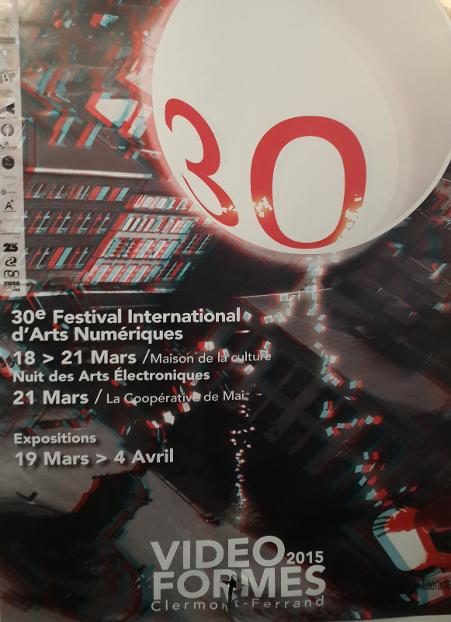
I Will Never Get Used to Wait
Venue//HINTERLAND//Vien
Artists: Amer Akel - Erfan Khalife - Mahmoud Dayoub - Muhammad Ali - Nawar Haidar - Nisrine Boukhari
Curator: Abir Boukhari
"We wait. We are bored...In an instant all will vanish and we'll be alone more, in the midst of nothingness!”...
„Was I sleeping, while the others suffered? Am I sleeping now? Tomorrow, when I wake, or think I do, what shall I say of today?“
Samuel Beckett, Waiting For Godot
I have been inspired by these quotations to propose the concept of "waiting during the war" For me, it is one of the most difficult feelings and we will never get used to it. The absence of action, expecting the worst, living for a future, remaining inactive or in a state of neglect for a time, postponing your life and looking forward eagerly to the day "something" happens to release from your fear of endless waiting.
Is the waiting considered as an intervening period of time spent for nothing or is life always a case of waiting to act? Is the waiting painful or is not knowing what to do the worst kind of suffering? Is the waiting, while we are living and experiencing paradoxical facts and contradictory feelings, a time of neutral behavior because feelings are so confused and unclear? Does waiting in silence that is the most common reaction to war trauma represent our experience of all kinds of pain and loss?
This exhibition is a reflection on the subject of waiting that resulted in works by artists from Syria. In the project, the artists engage with the concept through their own individual experience where they found themselves either forced to postpone their plans or create an alternative plan. Some art pieces already produced some years ago; The art piece of Nawar Haidar (produced in 2012) which express the absurdity of his waiting since 2012 till these moments.
Also, the piece of Erfan Khalife (produced on 2012) which came as response to my inquiry concerning his long wait in his life as Palestinian refugee lives in Syria, waiting for solution and find himself in new wait in his temporary homeland (Syria).
The other art pieces has been produced as a response from the artists about the concept of the "Waiting” whether they are still living in Syria or they already left the country.
What do artists think about this period, do they have different points of view about it, its meaning and its value? Do they believe that "waiting is as death" or it is a painful time will lead to a better life?
